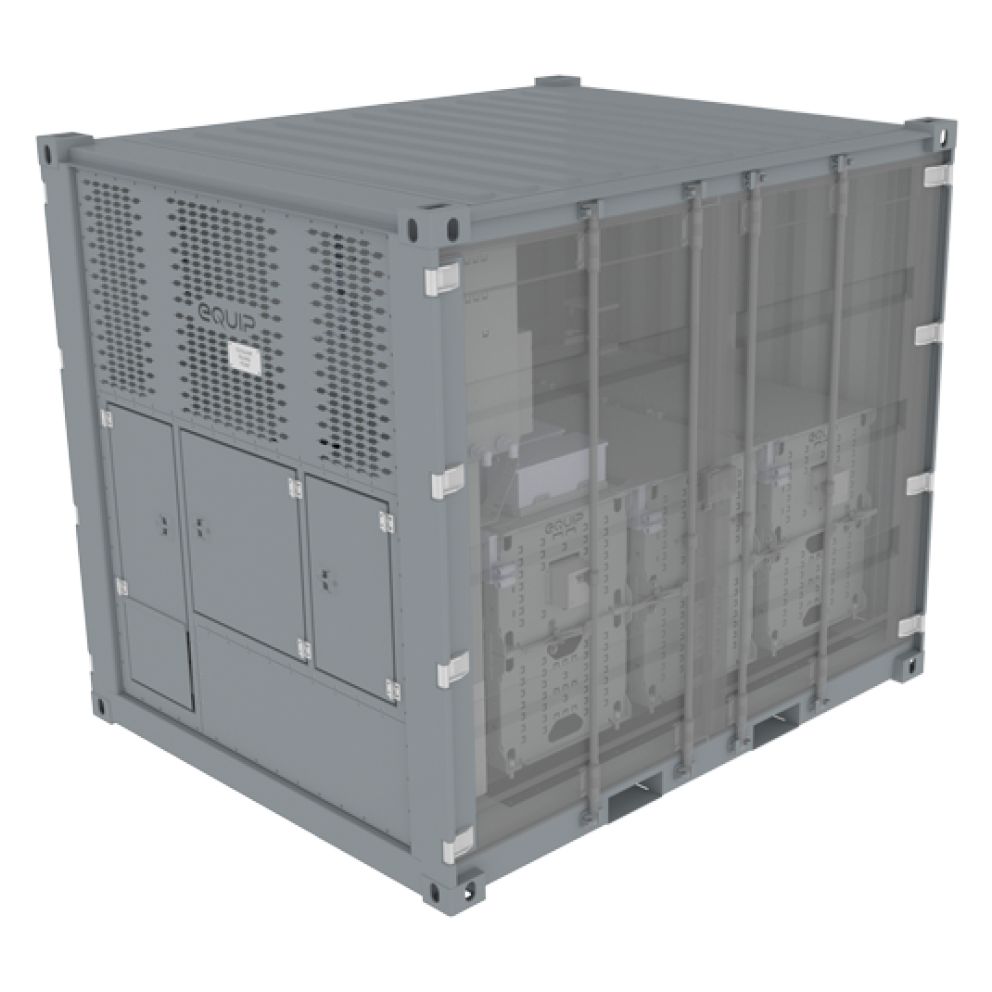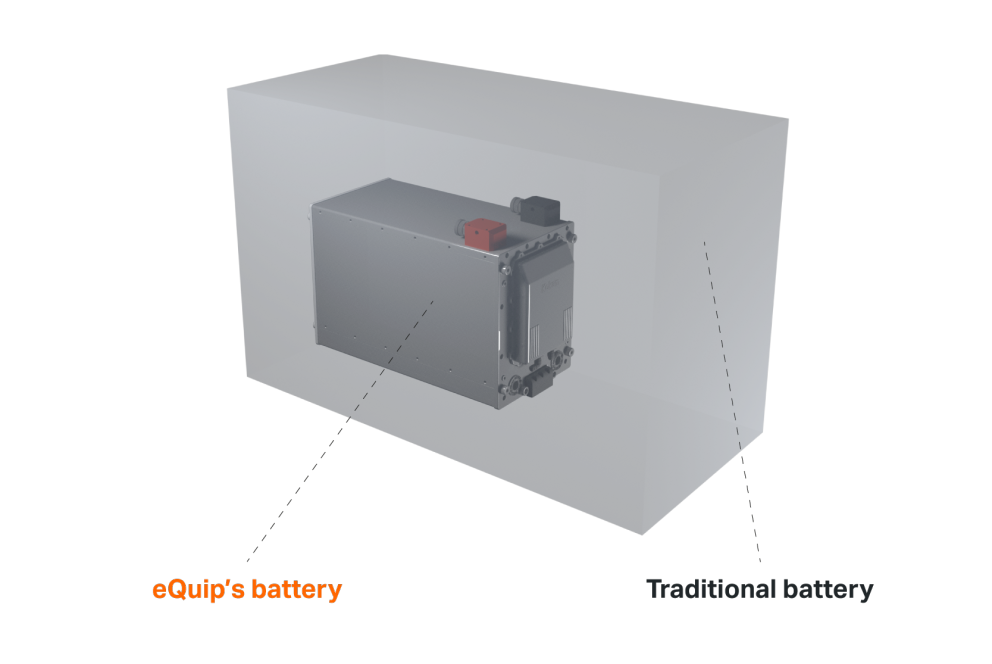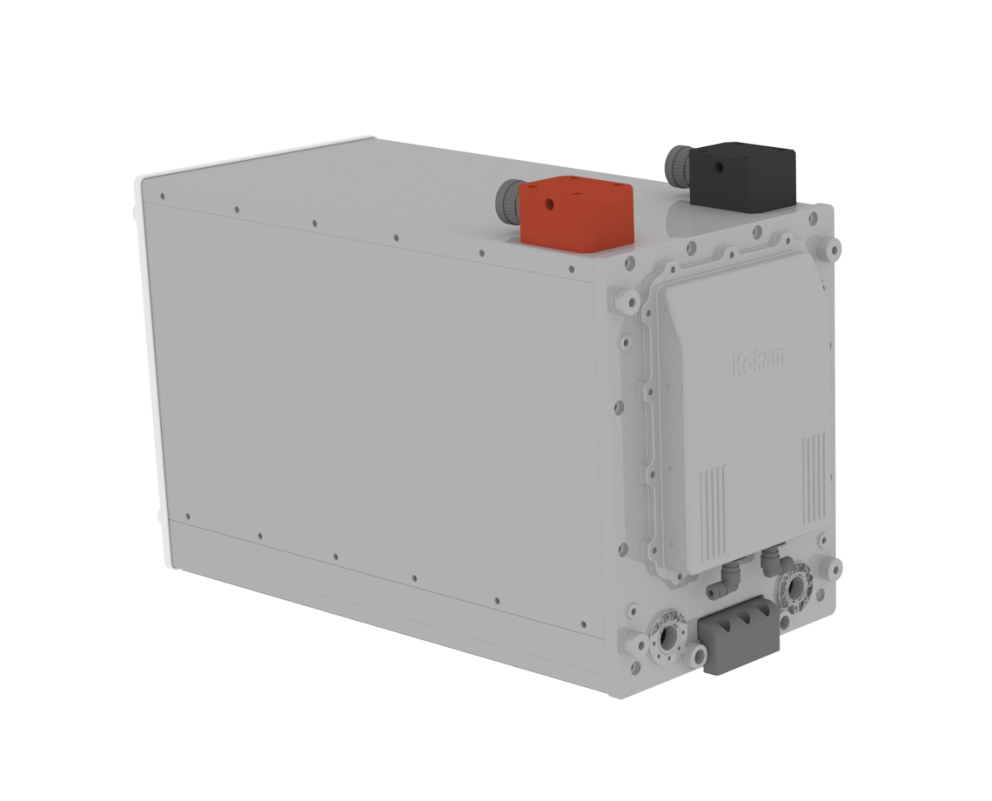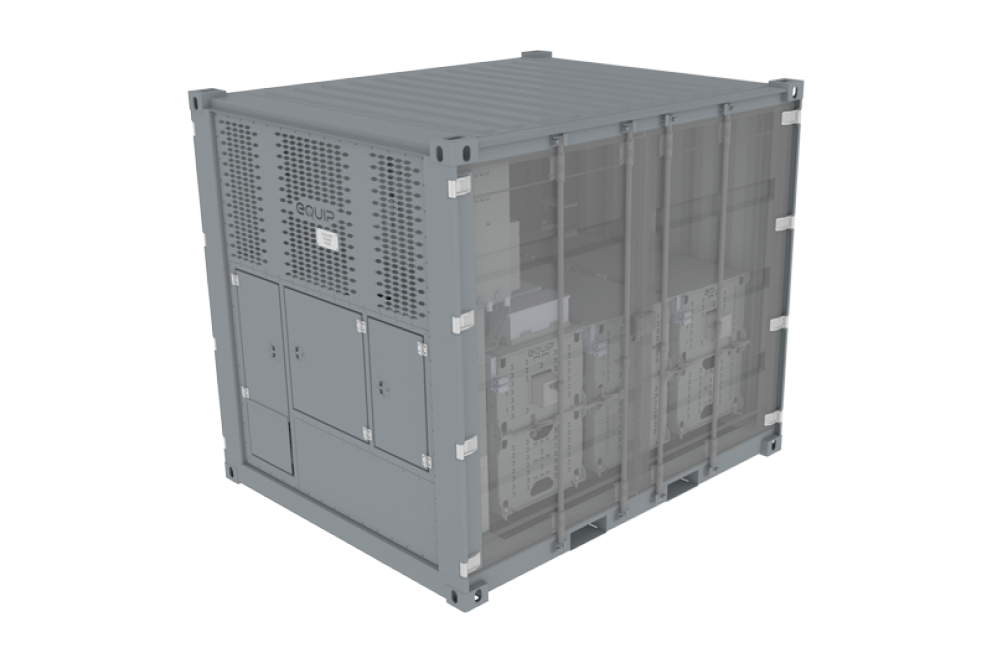
Properties of the energy storage systems
- Up to 8000 charge cyles
- High energy density, which makes them relatively lightweight and compact
- Modular and scalable
- Robust; can withstand vibrations and shocks
Weight
One of the major benefits of Lithium-ion batteries is its low weight. Compared to lead-acid batteries, they are about 70% lighter.

Dimensions
Lithium-ion batteries are significantly more compact than more traditional batteries. The dimensions can also vary up to 70%.

Efficiency
A lithium-ion battery has an efficiency of approximately 95% on a full charge/discharge cycle. A major difference with lead-acid batteries is that lithium-ion batteries can discharge up to 90%, whereas lead-acid batteries can only discharge up to 50%. This means we can get by with just over half of your lead-acid battery set, while a lithium-ion battery is also charges faster.

Specifications
| Energy storage: | 10kWh - 1MWh |
| Energy density: | 150 Wh/kg |
| Energy volume: | 400 Wh/litre |
| Voltage: | 48 - 1000 Volt |
| Degree of protection: | IP65, IP67, IP6K9K |

eQuip Energy Storage Container
| Dimension: | 10ft. Container |
| Energy: | up to 650 kWh |
| Charging: | 44 kW AC or 300 kW DC charging |
| Connections: | 300 kW DC |
| Optional: | -63A 400V AC 50Hz mains connection, 250 kW electric motor control inverter, 2nd 44 kW AC charging system, for simultaneous charging from 2 different power supplies |

Questions?
Any questions? Feel free to contact us!